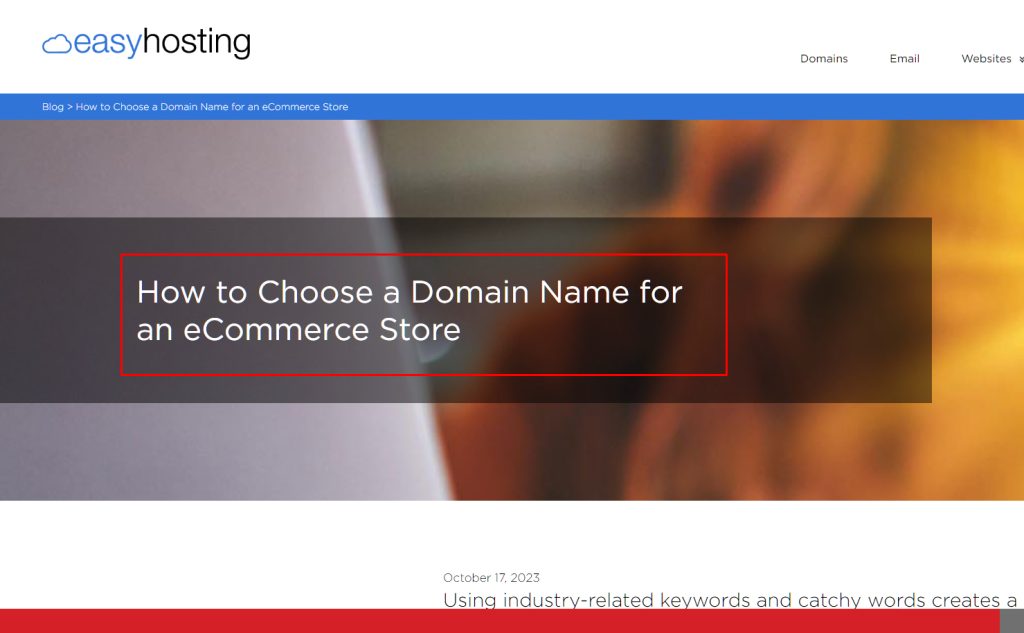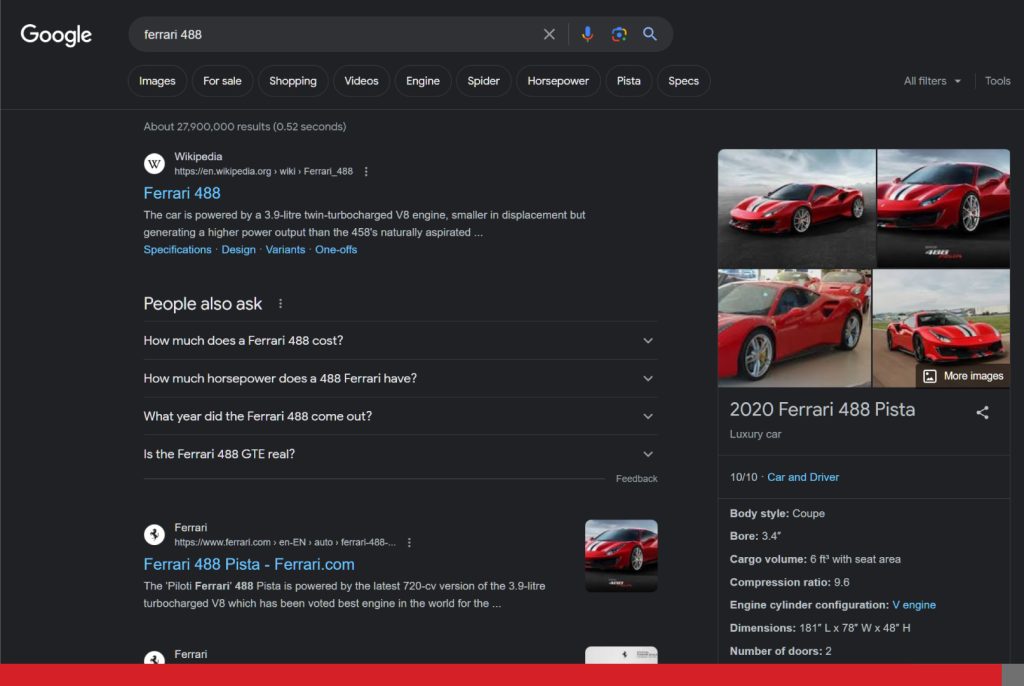There’s an increasing number of people who trust the first result on search engines. Analysis from reputable sources posted online shows that on organic search results, the first result has a CTR of 27.6%.
This means that if 100 people see this search engine results page, almost 30 will likely click on the first result.
That’s the power of the first spot on search results, and that’s why you need to be as much higher as you can on SERPs. And the best way to do this is by optimizing your website and content.
Today’s blog tackles on-page optimization SEO techniques you need to know for 2024.
- What Is On-Page SEO?
- Benefits of On-Page SEO for Businesses
- The Crucial On-Page SEO Elements (And Actions You Can Take Today)

What Is On-Page SEO?
When it comes to websites, on-page optimization involves improving and optimizing the elements present directly on your website with the intention of pleasing search engines.
Improving the ranking of your website involves several factors, including the language used on your pages, the organization of your content, the structure of your URLs, and the overall readability of your site. All of these elements play an integral role in boosting your online visibility.
Benefits of On-Page SEO for Businesses
Appearing much higher up on search engines brings important potential benefits for businesses of all sizes. Here are some:
- Increased website traffic: When your website ranks higher in SERPs, it’s more likely to be seen by potential customers. This can lead to a significant increase in website traffic.
- Improved online visibility: On-page SEO can help you improve your website’s visibility across the web, not just in search engines. This is because search engines use a variety of factors to rank websites, including links from other websites.
- Higher conversion rates: A well-optimized website is more likely to convert visitors into customers. This is because on-page SEO can help you create a website that is easy to use and navigate and provides visitors with the necessary information.
- Better brand recognition: When your website ranks higher in SERPs, it helps to build brand recognition and credibility. This is because people are more likely to trust brands that they see at the top of SERPs.
- Cost-effective marketing channel: On-page SEO is a relatively cost-effective way to market your small business. Once you have optimized your website, you can continue to benefit from the results for years.

The Crucial On-Page SEO Elements (And Actions You Can Take Today)
Search engines, such as Google, use a variety of factors to rank websites, including the quality of the content, the relevance of the keywords, and the overall structure and usability of the website.
On-page SEO is all about optimizing these factors so that your website is more likely to appear at the top of SERPs when people search for keywords related to your business.
Here are some of these elements:
Title Tags: The Most Obvious
Title tags are one of the most important on-page SEO elements that can significantly impact your web page’s visibility and click-through rate.
They appear as clickable headlines in search engine result pages and as the title of your webpage in web browsers. So, it’s important to craft them precisely, keeping in mind the user intent and search engine guidelines.
Title tags encapsulate the essence of your page; they communicate what your page is about and entice the users to click and explore further.
Here, we usually add our main keyword or keyword phrase to this section, as it’s the most powerful piece of our content.
It’s a powerful tool to grab the attention of both users and search engines.
Meta Descriptions: Short and Powerful
Meta descriptions are also vital in website content. These are short copies that are prominently displayed in search results.

They serve as a companion to your title tags, conveying more details (as their name suggests) to users about the page’s content.
These short and sweet snippets can make or break a user’s decision to click on your link and explore further.
Tip: On WordPress, you can use plugins like YoastSEO to add a customized element to all your posts, pages and categories.
It’s like giving users a sneak peek of what the article or landing page is all about. Therefore, it’s important to create your meta descriptions thoughtfully and respect the maximum length (usually 160 characters) to boost your website’s overall performance.
Header Tags (H1, H2, H3, etc.): Organizing the Content
Header tags are essential in organizing your web content in a structured and hierarchical manner.
Generally, H1 tags are reserved for titles, while the rest (going all the way up to H6 in some cases) are reserved for subheadings.
Like book chapters, header tags provide a clear thematic progression for your audience and search engines, making it easier for them to navigate through your page and understand the importance of each section.
This not only improves the readability of your content but also enhances the overall user experience.

Keywords: Another Piece of the Puzzle
Let’s not forget about the unsung hero of online content – keywords!
The example above shows filtered results when searching for a popular sports car. We can improve our search ranking by tailoring our content to match what people are searching for while still retaining relevance to our business.
The increased visibility will bring more traffic, and therefore, it will boost our brand awareness down the road.
Image Optimization: Painting a Thousand Words
The power of images on a website is unprecedented. Did you know that Google Image searches comprise nearly 22.6% of all searches?
Images in your content are crucial and also a ranking factor!
Optimizing images isn’t just about making them look good but also making sure that search engines can understand and categorize them accurately. Alt text is the tool that gives algorithms a clear picture of what’s in the image, while utilizing advanced image file formats like .webp brings better loading speeds.
Internal Linking: Weaving the Digital Web
Internal linking is the invisible thread that connects different pages of your website.
By linking relevant pages within your website, you create an invisible thread that weaves together the fabric of your content kingdom. This enhances user experience and guides both visitors and search engines through the intricate corridors of your website.
But why is linking so important?
For one, it helps visitors find the information they’re looking for more easily. By providing links to related content, you improve the user experience and increase the likelihood that visitors will stay on your site longer. This can also lead to higher engagement rates and more social shares.
Additionally, linking is important for search engine optimization (SEO). By including internal links, you help search engines understand the structure and hierarchy of your website. This can lead to higher search engine rankings and increased visibility for your content.
User Experience (UX): The Throne of Digital Royalty
At the heart of on-page SEO lies the throne of User Experience (UX). It’s not just about keywords and tags; it’s about ensuring every visitor feels like digital royalty. A seamless, intuitive journey through your realm increases dwell time, engagement, and, ultimately, the favour of search engines.
Conclusion
In conclusion, mastering on-page SEO techniques is something all businesses must aim for to gain an edge over their competitors.
The power of securing the top spot on search engine results cannot be overstated, with a 27.6% click-through rate for the first result.
Optimizing your website and content is the key to achieving higher rankings on SERPs, and the benefits are manifold for businesses of all sizes.
Looking to enhance your online visibility, draw in more website traffic, and boost your revenue?
You may want to consider our Search Engine Assist service. This cost-effective digital marketing strategy provides lasting outcomes by optimizing your website for search engines.
We can offer guidance on the complexities of on-page SEO and help your business flourish in the ever-changing digital world. SEA offers on-page and off-page SEO tasks to improve your website ranking with step-by-step instructions and a competition tracker to understand how other businesses around you operate.
For more informative topics, visit our EasyHosting Blog today.

